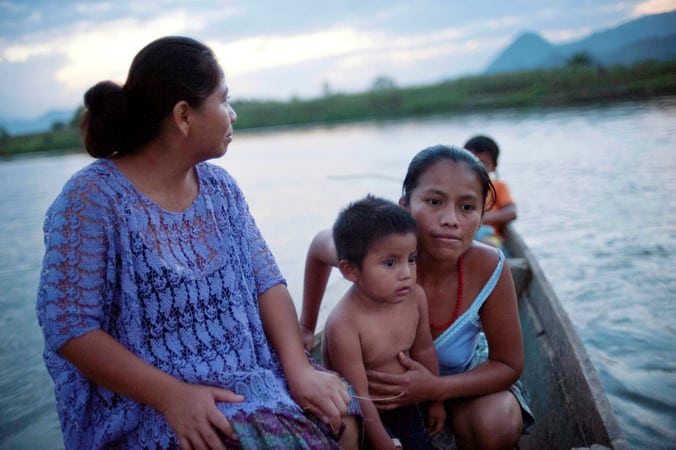Today is International Day of the World’s Indigenous Peoples! We celebrate the countless contributions of Indigenous peoples to the world, including their diversity of ideas, languages and technologies, their knowledge and histories, and their lasting commitments to protecting the environment. In a world threatened by rapid climate change, Indigenous peoples have lived sustainably with forests and prevented the degradation of the environment that causes climate change.
Yet their lands continue to be stolen. Their human rights, including social, economic, cultural and political rights, continue to be disrespected all over the world – from Standing Rock, North Dakota, USA, to Kilombero, Tanzania.
Indigenous peoples are a majority in the Central American country of Guatemala, yet they are still denied basic human rights after almost 500 years of colonization. Since the beginning of 2018, at least 18 defenders of Indigenous land rights have been murdered in Guatemala. Recently, on July 24 a young Maya Q’eqchi leader, Adolfo Ichich Chom, was killed in a land conflict with a large landowner in Baja Verapaz. Then on July 28, neighbors found the tortured body of Juana Raymundo, a 25-year-old Maya Ixil leader, from the town of Nebaj. This is the region that experienced the worst of the genocidal tactics that the Guatemalan government (with support from the United States) carried out against Mayan peoples in the 1980s during the country’s 30-year-civil war. The conflict was fought largely over the vastly unequal distribution of land between large-scale plantations and rural communities.
Currently, hundreds of Indigenous people are facing criminal charges for political reasons under a corrupt justice system where the wealthy can bring criminal charges against those who engage in protests or organize to defend their land rights. One example of this travesty of justice is the false charges of illicit association and conspiracy brought against Maya Q’eqchi’ community organizer Abelino Chub who has now been in prison without trial since February 2017. His trial is not scheduled to begin until April 2019.
There is so much that can and must be done. For starters, the governments that supported the Peace Accords for majority-Indigenous Guatemala, especially the U.S., need to hold the Guatemalan government accountable. We must support the territorial rights of Guatemala’s Indigenous peoples as they are recognized in most countries throughout the hemisphere. A small step would be for the U.S. government to stop threatening and give full support to the International Commission Against Impunity in Guatemala, which is investigating the human rights violations and the corruption that is being wielded against Indigenous people who are defending their rights.
Indigenous land rights must be respected because Indigenous lives matter. For millennia, Indigenous peoples have led the way in honoring and caring for the environment, developing the diversity of foods and cuisines that are the basis of food security for all. Respecting their right to live on and access their lands – the places they have stewarded for generations – is essential to building an equitable and sustainable world for everyone.

